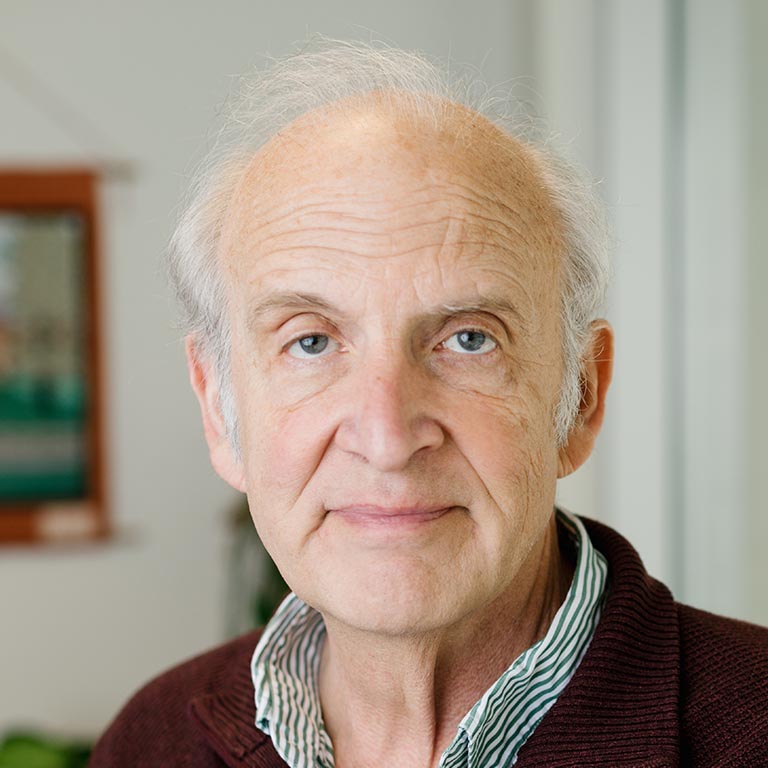- Ph.D., University of Chicago, 1987

Gregory A. Schrempp
Professor, Folklore and Ethnomusicology

Professor, Folklore and Ethnomusicology
From “little” folk tales to the mythological boundaries (represented or actual) of the cosmos, Professor Gregory A. Schrempp’s work consistently breaks ground in the investigation of timeless questions.
Greg grew up in the small town of Clarkston on the Washington-Idaho border, and he cites an excellent high school education at Catholic boy school when speaks of the beginnings of his life as a scholar. While he left behind sectarian concerns, his work as a mythologist grew out of youthful spiritual interests. Early in his undergraduate studies at Washington State University, Greg enrolled in an anthropology course. After the first class, he walked directly to the administrative offices to major in Anthropology. In 1972, Greg earned his Bachelor of Arts with highest honors.
From Washington, Greg pursued graduate study in Bloomington as a student at Indiana University’s Folklore Institute where he worked with folklorists, including Richard Dorson and Linda Dégh, and anthropologists who were interested in mythology, including Jerome Mintz and David Bidney. In 1975, Greg received his M.A. in Folklore from Indiana University. From Bloomington, he headed north to the University of Chicago. His mentor Marshall Sahlins’s interests in the Pacific pointed him toward Polynesia, and with Fulbright funding in 1981, Greg set out to study Maori archives in New Zealand. The following year, he took a position at the University of Waikato and worked on traditional Maori oratory, whaikōrero. In New Zealand, Greg lived in the Maori community Wāhi Marae, witnessing the annual cycle of hui (gatherings) and making the study of Maori language his priority. With a “dream committee” directed by Marshall Sahlins, Greg defended his dissertation, “Maori Cosmogonic Thought” in 1987. From Chicago, Greg spent four years as faculty in Anthropology at Wesleyan University, but after an American Anthropology meeting where Greg talked with IU folklore faculty who encouraged him that the Folklore Institute was ready to hire a mythology expert, Greg accepted a position as Assistant Professor of Folklore and returned to Indiana University in 1989.
In 1992, Greg published Magical Arrows: The Maori, The Greeks, and the Folklore of the Universe. Magical Arrows is a radical book that homes in on essential qualities of cosmological thoughts. In his foreword, Marshall Sahlins writes that Magical Arrows “opens up a new field of comparative cosmology wherein Zeno of Elea, the Maori sage Te Rangikaheke, Arthur O. Lovejoy, intellectuals of the Ojibwa, Tikopia, Bororo, and Jicarilla Apache, and Claude Lévi-Strauss all converse with one another on universal themes of being whose most general metaphysical expression is provided by Immanuel Kant and whose most popular narrative version is the race of the tortoise and the hare.”
In dozens of book chapters and articles, Greg’s rigorously comparative approach has located a host of fresh connections between folklore, philosophy, science, and myth. Exemplars include “Aristotle’s Other Self: On the Boundless Subject of Anthropological Discourse” (1989), in which Greg analyzes Western thinkers’ tendency to exoticize perceived logical-problematics in non-Western myths even though Westerners need look no further than Aristotle to find fantastically fuzzy notions of a boundless “second,” “other self.” Another is “Folklore and Science: Inflections of Folk in Cognitive Research” (1996), which remains the most sophisticated analysis by a folklorist of the use of the term folk by scientists and philosophers who on one hand, categorize a range of psychological phenomena—including psychological projection, psychological theory-making, and belief—as non- or pre-scientific “folk” aspects of mental behavior, but on the other hand, understand that the scientists’ access to clandestine “folklore of science” grants them access to a sort of insider truth that official science may not convey.
Aware that he as a mythologist must have his own answers to cosmological questions, Greg discovered in popular science writings a way to investigate the collective forms of his individual answers to those questions. Three books must be mentioned, here: The Ancient Mythology of Modern Science: A Mythologist Looks (Seriously) at Popular Science Writing (2012), Science, Bread, and Circuses: Folkloristic Essays on Science for the Masses (2016), and The Science of Myths and Vice-Versa (2016). In each, Greg finds science writers consistently presenting their arguments in ways markedly folkloric and mythic—whether they are appealing to the dynamics of perceived-versus-actual truth, to wonder, or to professed compensatory transitions from one naïve, “mythic” worldview to an updated, “scientific” other.
An affiliated faculty member in IU’s Classical Studies program, Greg has contributed significantly to Indiana University and to the discipline of folklore. He has received IU’s Trustees Teaching Award and the Teaching Excellence Recognition Award. In 1999, Greg and his colleague William Hansen organized a “new” symposium on myth, an intentional follow-up to the symposium that produced Thomas Sebeok’s influential edited volume Myth: A Symposium (1965). No less a success than the original, Myth: A New Symposium (2002) updates the study of myth with the insights of the second half of the twentieth century. Just this year, Greg published The Truth of Myth: World Mythology in Theory and Everyday Life (2020), a poignant overview of the theories and history of myth scholarship, constituting a gift for colleagues and students alike.
We look forward to spending time with Greg and his wife, fellow scholar Cornelia Fales, as they settle into Greg’s retirement just as we look forward to coming to know Greg’s most recent and forthcoming works. They always help us “gain a toe-hold in the universe.”
-K. Brandon Barker